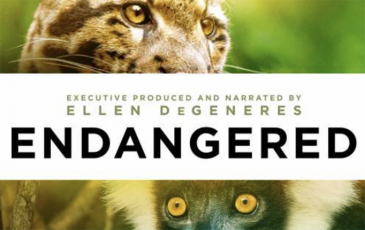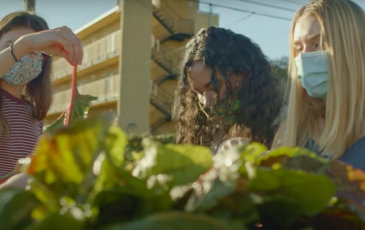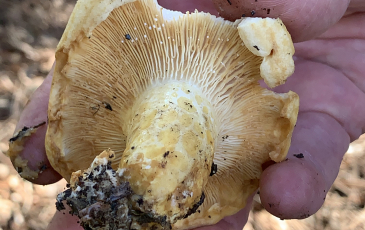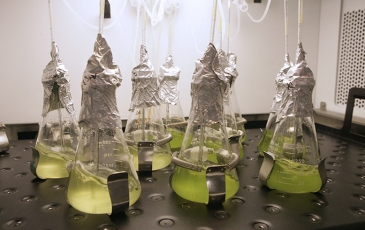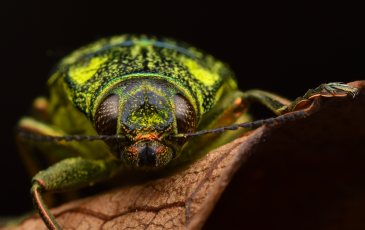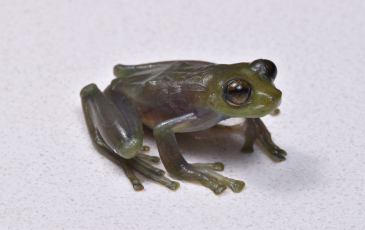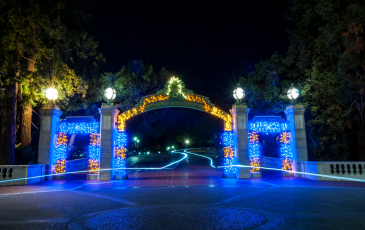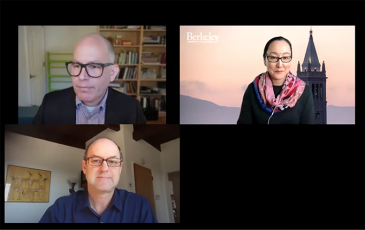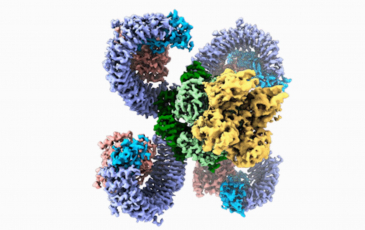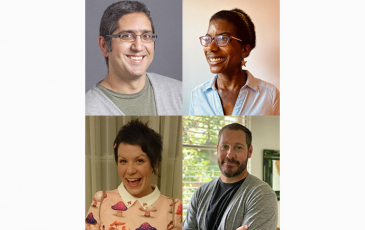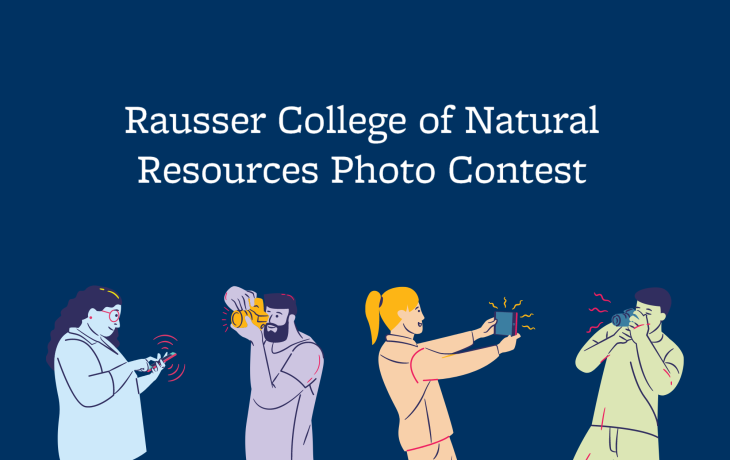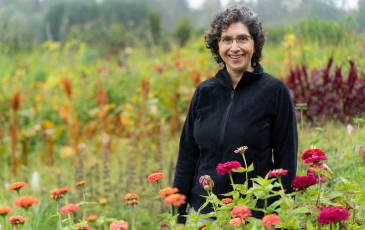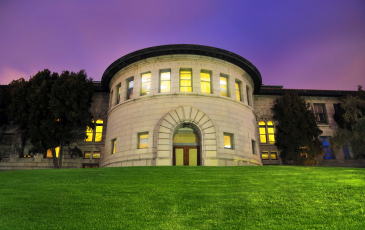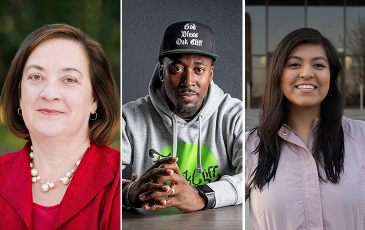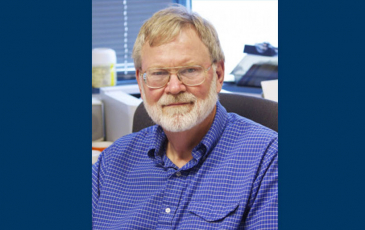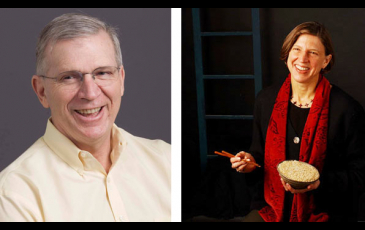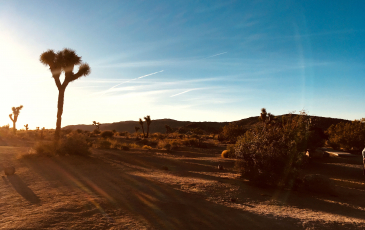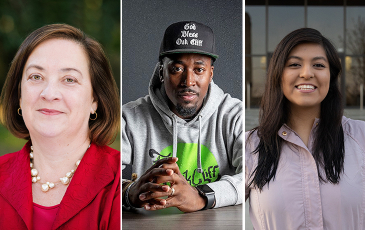Released on Earth Day, the documentary spotlights Rosenblum's amphibian conservation research in one of seven segments.
Berkeley Student Farms grows more than food
Berkeley Student Farms is a coalition of student-run gardens dedicated to giving student-farmers ownership over the foods they grow, reconnecting to the land’s indigenous heritage, and empowering leadership, collaboration, and onsite learning.
Fungi and Friends
This moderated discussion featured a panel of UC Berkeley experts will pore over the myriad ways modern civilization interacts with fungi. The panel will speak to our millennia-long appetite for them in cuisines throughout the world, as well as their evolving presence in commerce, medicine (including the use of psilocybin in modern mental health treatments), public health (including indoor air quality and the spread of opportunistic disease), as well as the impact climate change is having on the mushroom season.
Green algae reveal one mRNA encodes many proteins
In a new study, researchers in professor Sabeeha Merchant's lab outline a previously unknown similarity between bacteria and more complex forms of life.
Rausser College Photo Contest Winners
The images submitted to the 2020 Rausser College photo contest represent the diverse research and activities of the college community.
Near a waterfall’s roar, glass frogs wave hello to attract mates
ESPM PhD candidate Rebecca Brunner discovered a novel communication technique of an elusive amphibian.
20th Anniversary ELP Webinar Series: Max Auffhammer
The Beahrs Environmental Leadership Program series begins with a discussion on the incoming Biden Administration and the global environment.
Plant Immune Receptor Discovery Can Help Scientists Fight Agricultural Pandemics
Plant & Microbial Biology professor Brian Staskawicz made a critical step toward helping plants fight pathogens without pesticides.
Serving (Up) Science: Tools, Trust and Twitter
Our panel of social media super users shared their insights, addressing how, why and by whom these new communications tools are being shaped. The panel also probed how changes in access to a broader online audience impacts the in-person world—both intended and unintended—and invited viewers to consider the opportunities and challenges for the PMB community as it enters its fourth decade.
Rausser College of Natural Resources 2020 Photo Contest
Submit your best images by January 6 for a chance to win prizes and to have your work featured online and in print.
Claire Kremen awarded Volvo Environment Prize
Kremen is recognized for her research in conservation biology and agricultural land use.
Professor Jill Banfield featured in NOVA documentary
Banfield studies the genomes of microorganisms such as bacteria and archaea.
Dean Ackerly on the "State of the College"
The second annual State of College address featured information on faculty hires, equity and inclusion efforts, capital projects, and more.
Outside For All: Investing in Parks to Build Community Power
The recent Albright Lecture featured a discussion between the Trust for Public Land and other community leaders.
Martin Meyerson Faculty Research Lecture with Steven Lindow
Lindow's lecture, taking place on August 25th, will address the relationships between plants, microbes, and the environment.
The Future of Food: Genetic Improvement Meets Sustainable Agriculture
How do we feed a growing population and engineer crops that are resilient to climate change? How do we increase crop yields and fight crop diseases and pests while preserving our soils and water sources? The rapid advance of gene editing and other technologies has provided a new tool kit to address these questions and more, and they have already made an impact at a global scale, just at the moment when global-scale solutions are needed most. Brian Staskawicz (UC Berkeley) and Pam Ronald (UC Davis) discuss the latest advances in using genome editing and other genetic technologies to promote sustainable agriculture at scale, both promises and potential pitfalls, and how we move from lab to field safely and equitably.
Dean Ackerly speaks at Ecological Society of America symposium
Ackerly was invited to give a lecture at the ESA 50th Anniversary Symposium, covering race, society, and the history of ecophysiology.
Conservation Conversations launches webinar series
Members of the Institute for Parks, People, and Biodiversity and the Department of Environmental Science, Policy, and Management participated in the inaugural event.
Outside For All: Investing in Parks to Build Community Power
Join Diane Regas, President and CEO of The Trust for Public Land, Teresa Bendito, co-founder of Parque Padrinos, and Taylor Toynes, Executive Director of For Oak Cliff, in a discussion on parks and community power.


